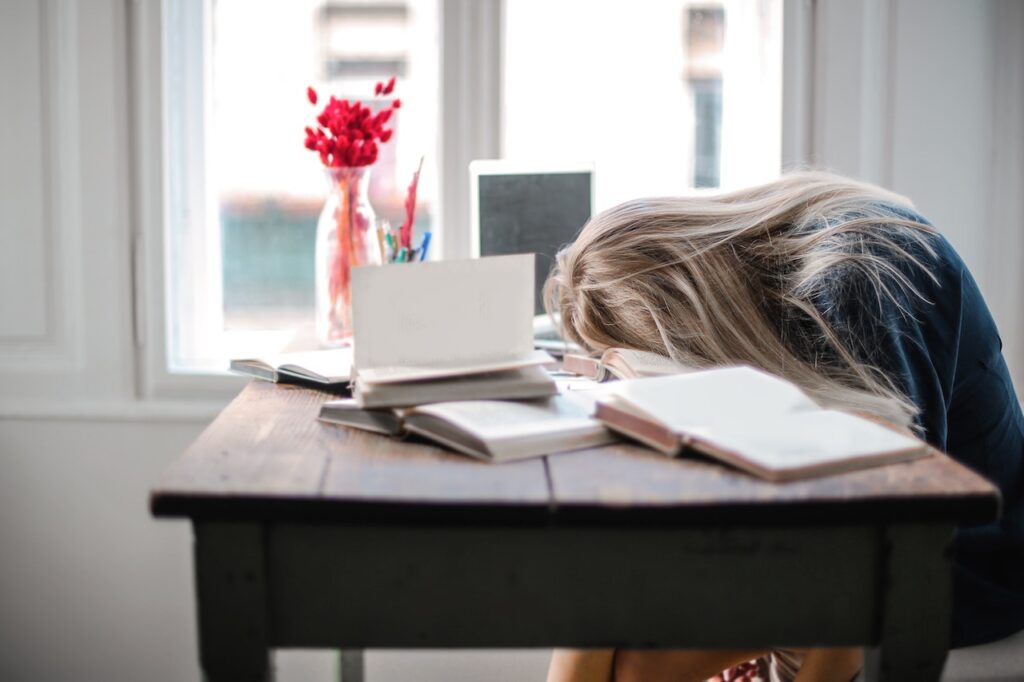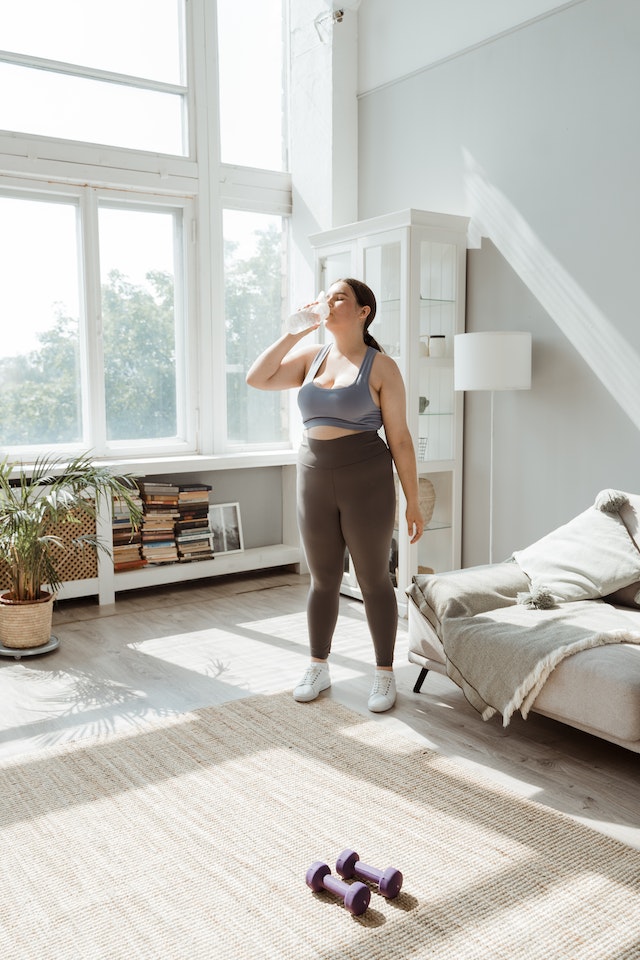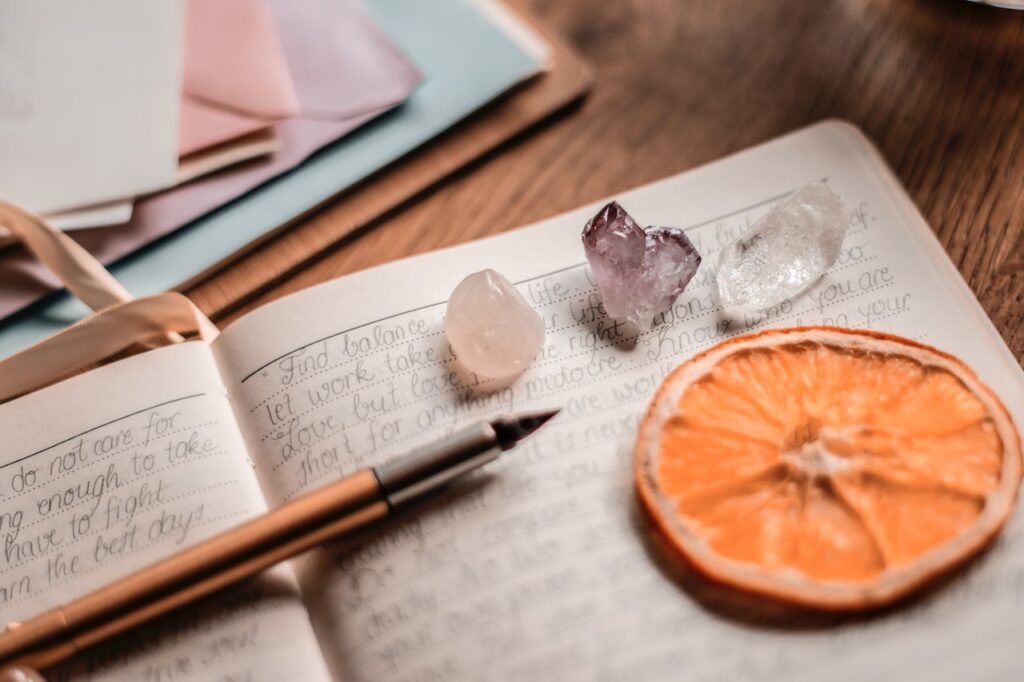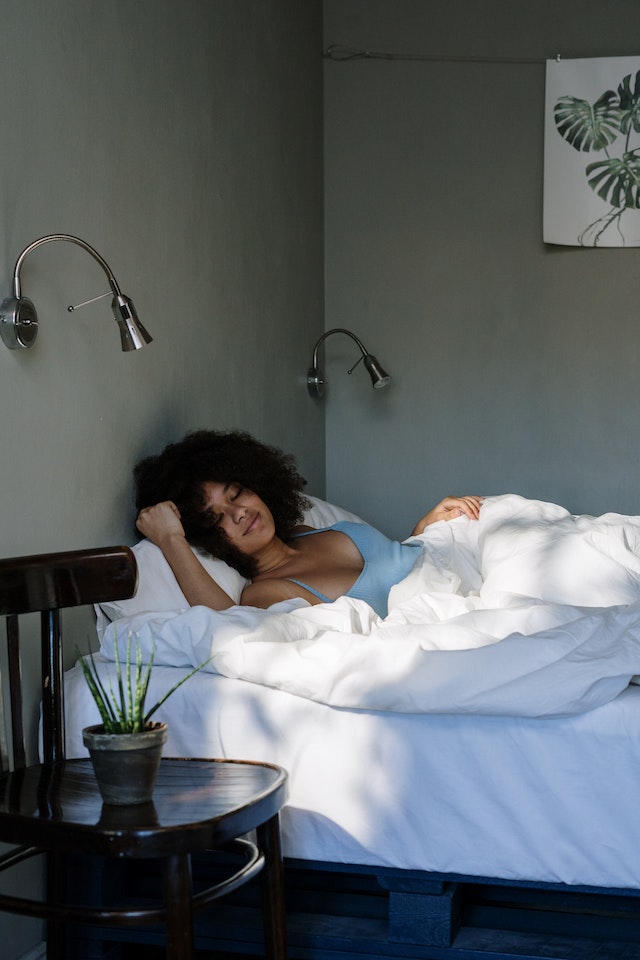Have you ever experienced jet lag after travelling to a different country? — the feeling of weariness after crossing multiple time zones. This is a good example of what happens when we compromise our sleep routine.
Plus, if you want the energy to redefine your reality and achieve your goals, having a consistent sleep and bedtime routine is essential. This guide reveals how to build a simple bedtime routine and it tells you what daytime habits can cause nighttime insomnia.
Understanding How The Body Sleeps
There are 2 bodily processes that control the sleep-wake cycle. When out of sync, your body’s energy levels get affected.

Process 1: Sleep-wake homeostasis
The sleep-wake homeostasis is your body’s need for a balance of sleep and wake time. In simple terms: the longer you stay awake, the more your body needs sleep.
It also means that we feel most energized when we wake up. However, this isn’t the only process that affects your sleep cycle.
Process 2: Circadian rhythm (Body clock)
The circadian rhythm is the body’s biological clock that runs in a 24-hour pattern. It helps regulate hormones, body temperature fluctuation, and metabolism.
The circadian rhythm cycle is heavily influenced by light, however. When it detects light, the body will stay alert and when it’s dark outside, the body will release melatonin, a hormone that prompts our biological system to rest and induces sleepiness.
Why Can’t I Fall Asleep? – What Causes Sleeplessness At Night
The truth is, common habits of everyday life such as all-nighters, falling asleep in the afternoon, and napping disrupt our circadian rhythm.

Here are more reasons that may contribute to inconsistent sleep patterns:
- Having to wake up early on work days but sleeping in on weekends
- Working overtime, night shifts, or irregular shifts
- Daytime fatigue
- Excessive/late caffeine intake
- Jet lag
- Sleep disorders
- Depression or anxiety
Your sleep cycle and bodily functions will be thrown off by your body constantly adjusting to a new schedule. The good news is that once you get used to a sleep routine, your body will adapt, and you’ll have no problem falling asleep. You’ll also be able to wake up without an alarm clock.
6 Daytime habits to prevent insomnia
Your habits during the day determine if you’re able to fall asleep at bedtime.

If you have trouble falling asleep at night, here are some tips to make you fall asleep easier at the right time.
Reserve your bed area only for sleeping
Much of our biological clock depends on cues. Another way you can signal your body to start resting is by lying on the bed. But this isn’t going to work if you always lie on your bed during the day and even when you’re working. So, avoid being on the bed when you’re not about to sleep so that your body associates lying on the bed with sleep.
Avoid napping
When you take a nap, the body’s need to sleep resets to 0 – as per the sleep-wake homeostasis – causing you not to feel tired at night.
At most, just take power naps of around 30 minutes in the middle of the day (not in the afternoon).
Avoid caffeine after the mid-afternoon
Experts say that caffeine can affect the body until 5 hours after consumption. Steer clear of caffeine 6 hours before bedtime. It’s better to get your caffeine fix in the morning to get you through the day.

Get as much sunshine as possible during the day
As we’ve discussed above, our body’s circadian rhythm depends on light. Getting as much sun exposure during the day will remind your body that it’s wake time, keeping you energized during the day thus inducing it to rest at nighttime. Of course, use sunscreen to protect your skin from UV damage.
If possible, try going outside immediately after you wake up. Not only will the walk wake you up but the sunlight exposure will also nudge your circadian rhythm to initiate the hours of wakefulness. At the very least, go to the balcony or window.
On the flip side, when you’re about to sleep, steer clear of any light. If you work nightshifts and have to sleep in the early hours, close all the curtains and use a sleeping eye mask.
Drain your energy during the day
When you’re exhausted, it’s easier to fall asleep. Parents often use this trick to get their kids to bed early, so why not use it on ourselves?
One of the best ways to do so is by exercising daily. Aside from using up your energy, exercises also promote melatonin production.
Keep in mind that overexerting yourself might get you to fall asleep too soon. Find the perfect level of tiredness that will make you fall asleep at the right time.
Have a set time for dinner every night
Sleep affects metabolism but metabolism also affects sleep. The last time you eat acts as a cue for your body to start resting after metabolism stops. To promote sleep quality, don’t eat anything at least 2 hours before bedtime.
How to build a bedtime routine for adults
It’s time to build your sleep routine now that you know what to do during the day. Having a set bedtime routine will help set a cue to let your body know when to rest.
1. Set a consistent bedtime

Pick a time to go to bed that ensures you have at least 7 to 8 hours of sleep. Just work backwards based on your time to wake up. For example, if you want to wake up at 6 in the morning, you have to be in bed by 10 or 11 pm.
There is no pressure to fall asleep exactly at your bedtime time. You just have to be in bed, with your eyes shut, as this trains your body to feel sleepy at a certain time.
2. Steer clear of gadgets 1 hour before bedtime

Cellphones emit blue light that mimics daylight. This induces the body to believe it’s daytime, leading our body to be alert thus delaying sleep.
On top of that, the passive activity of scrolling on your phone engages the brain to stay active long after you stop scrolling. This means that even when you sleep, your brain won’t rest. Switch off your phone, or set it to silent/airplane mode 1 hour before going to bed. Keep it away from the bed.
3. Take a warm bath & brush your teeth

Take a warm bath, brush your teeth, and apply skincare. Taking a warm shower can lower your body’s temperature. This signals to your mind and body that you are getting ready to wind down for the day.
You should also consider cooling your bedroom down an hour before bedtime.
4. Wind down with a relaxing activity

Instead of scrolling through social media, do something that helps your brain and body relax. Try meditating, reading books (not an exciting one though!), journaling, or doing some yoga stretches.
Consider using a sleep sound machine to play soothing ambient sounds, like white noise or rain. This is especially useful if you find total silence unnerving when sleeping. It is also great for anyone who constantly travels and find it difficult to sleep in an unfamiliar place.
SOUND MACHINE & NIGHT LIGHT
sleep & relax to soothing sounds
Feel relaxed and comfortable at bedtime with this sound machine & night light.
5. Use these techniques against worries & anxieties on stressful days

Rumination and worries can often keep you from falling asleep. If you’ve had a particularly stressful day, consider journalling or meditating.
- On scrap paper, write down your worries and negative ruminations. Then, tear it up and throw it into the bin. Doing this symbolically and psychologically throws those worries away.
- In your to-do list, write down key things you want to do the next day so that you don’t keep thinking about them.
- In a journal, write down three things you’re grateful for on that stressful day. This could be anything, even something small like a friendly neighbour smiling and saying “hi”.
If you’re someone who is susceptible to getting nightmares (and is afraid of sleeping because of this), consider trying out this subliminal audio against night terrors. It works by trying to rewire your subconscious and eliminating the negativity that manifests into nightmares.
How long does it take to adjust to a sleep routine?
Feeling like you’re not seeing any results?

You will struggle to fall asleep initially when implementing your new bedtime routine. But keep at it for 10 consecutive days – this is the approximate time it takes to adjust to a sleep routine.
These are even more pieces of advice to ensure your success.
Do not pull an all-nighter to fix your sleep routine

All-nighters will not fix your sleep schedule and might even ruin it even more. Depriving yourself of sleep doesn’t guarantee a good sleep quality the next night.
Change your bedtime little by little
If it’s hard for you to build an entirely new sleep routine (for example you usually sleep at 3 and want to start sleeping at 11), try moving down your bedtime little by little. You can try going to bed half an hour earlier every day until you manage to fall asleep at the bedtime you want.
Track your progress
Talk about finding the best level, try keeping a sleep journal to track your sleep routine progress. Write down your daily activities as you’re trying to adjust to a new sleeping pattern. This will help you determine what’s messing up your sleep routine and what works.
Try Sleeping meditations & Subliminal recordings
Many people with mild to moderate insomnia have found sleeping meditation and audio with subliminal messaging useful. One particular subliminal track for insomnia relief that seems to have several good reviews comes from Real Subliminal.
Insomnia Relief (Subliminal MP3)
Fall asleep naturally
This subliminal audio has helped people with insomnia fall asleep.
Seek professional help for sleep disorders
If you’re suffering from depression, insomnia, or other sleeping disorders, it’s better to seek professional help so you can start your journey to improved well-being.
The bottom line: Having a consistent bedtime routine helps you sleep better
Having a sleep routine will help your life in many ways. Not only will it improve your physical health but it also improves your mental health. If you’re looking to overcome anxiety and procrastination, getting a good night’s sleep every day will give you more energy.
On top of that, by setting small habits to change your sleep routine, you will also become more mindful in your day-to-day life instead of letting time pass you by.
Redefine your reality & life
Whether it’s for guided meditation or better sleep, check out our store.


